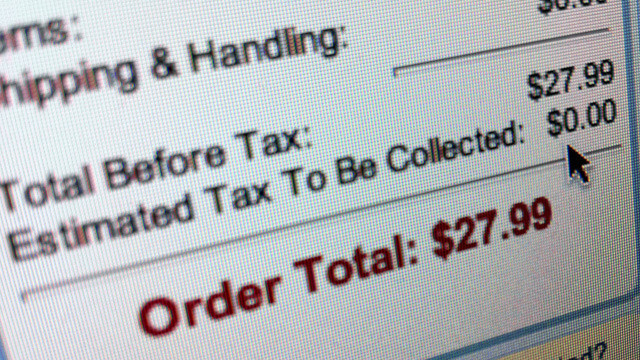By Guest Contributor | December 6, 2013

See why top ecommerce brands use Miva’s no-code platform to run
multiple stores, manage massive catalogs, and grow their revenue.
While online retailers were taking in orders as fast as they could on the busiest online shopping day of the year, the Supreme Court and Congress turned away appeals from Amazon.com and Overstock.com to fight the new internet taxation law. On Cyber Monday, the Court announced that it would not hear the case.
Joseph Henchman of the Washington Tax Foundation said that Monday’s court action means “it might be the last Cyber Monday without sales tax.”
The decision being fought is one that would force online businesses to remit sales tax the same way that in-state business do. This could be detrimental for online retailers because one of the biggest attractions for consumers to purchase online is the avoidance of state sales tax.
The National Council of State Legislators estimates that $23.3 billion was lost by states who were unable to collect sales tax online and in catalog purchases in 2012.
Thanksgiving weekend 2013 was the most profitable 5 days in ecommerce history, as shopping online is becoming more and more widespread.

State taxes started during the Great Depression in order to increase state revenues. They continue to be a main source of revenue for 45 states today. However, with the ecommerce boom, there has been a decline in state revenues. Twenty-four states have already complied with the Streamlines Sales and Use Tax Agreement. Online and catalog retailers only collect states in territories where they have a physical presence.
States have tried to use consumer use taxes in order to discourage consumers in their state from shopping across state borders. However, the enforcement of this law has been challenging to say the least. States have turned their focuses to collect business use tax.
The 2008 New York affiliate nexus law states that businesses that enter into agreements with New York affiliates must collect sales tax. Here’s how the law defines affiliate relations:
A person making sales of taxable tangible personal property or services is presumed to be soliciting business through an independent contractor or other representative if the seller enters into an agreement with a resident of this state under which the resident, for a commission or other consideration, directly or indirectly refers potential customers, whether by a link on an internet website or otherwise, to the seller, if the cumulative gross receipts from sales by the seller to customers in the state who are referred to the seller by all residents with this type of an agreement with the seller is in excess of ten thousand dollars during the preceding four quarterly periods ending on the last day of February, May, August and November.
New York and other states are saying that online retailers using affiliates should count as a physical presence. Overstock ended its affiliate program in New York in 2008 after the law passed and has ended the affiliate programs in other states enforcing the law.
Both Amazon.com and Overstock.com collect sales taxes: Overstock collects in Utah, where it is based, and Amazon collects in 16 different states. Amazon and Overstock plan to press their case in Congress in order to get a uniform sales tax decision for all states.
Although Monday’s result settled the issue for New York, courts and legislatures in other states have come to different conclusions. Consumers will still have tax-free Internet purchases from certain websites and some won’t because of where they live.
The US Senate passed the Marketplace Fairness Act of 2013 (MFA) last May, which granted states the right to require certain remote vendors to collect sales tax. As the months passed through the year, the House refused to discuss the matter. The only information we were allotted was from Bob Goodlatte, Chairman of the House Judiciary Committee, (R) who released the 7 Principles of Remote Sales Tax. With the end of the year just a few weeks away, the MFA is unlikely to move forward this year. However, the issue will not be forgotten forever. eBay will continue to fight MFA and state lawmakers and Amazon will continue to lobby for it.
The Supreme Court’s refusal to hear the New York cases opens the door for other states to follow their broad sales tax collection model. States will be willing to do so because of the large streams of revenue that could be brought in through online sales tax.
Is your online business prepared for these sales tax changes? Talk to our partners at Avalara who can help you understand the changes your business may need to make.
Back to topNo worries, download the PDF version now and enjoy your reading later...
Download PDF Guest Contributor
Guest Contributor
The Miva ecommerce platform powers some of the web’s most spectacular online stores—stores that benefit every day from our relationships with our partners and other valued providers. We work with our network of experts to create fresh, insightful content for all independent merchants. Interested in contributing to the Miva blog? Click below to learn more about our co-marketing opportunities.
Visit Website